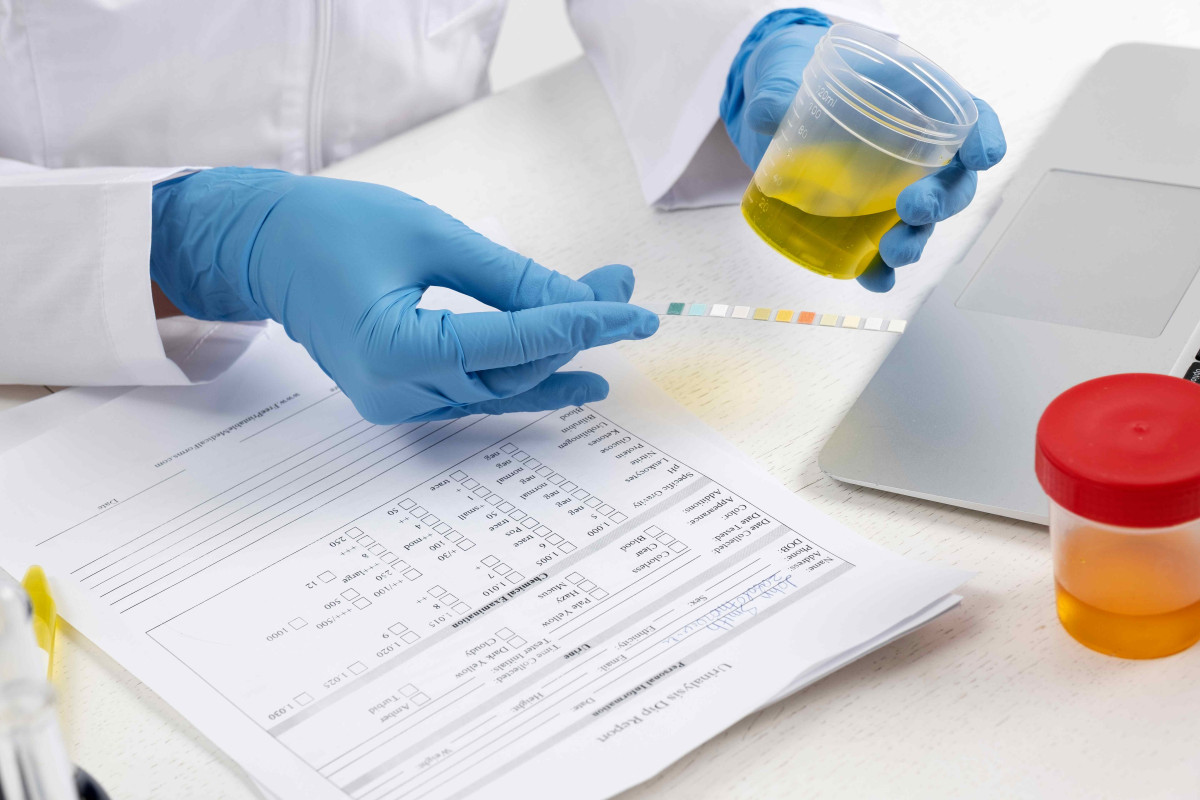Updating Safety Plans with Drug Testing
Florence, United States - May 14, 2025 / Palmetto Testing and Compliance /
As the season of renewal and fresh beginnings, spring often serves as a reminder to clean, organize, and refresh various aspects of our lives. For businesses, it’s the perfect time to perform a "spring cleaning" of safety protocols, ensuring that all operations and policies align with current best practices. One key area that many organizations overlook or fail to revisit regularly is drug screening. Routine drug screenings are a crucial component of a robust workplace safety strategy, and integrating them into your annual protocol review can yield significant benefits for both employees and employers.
Enhancing Workplace Safety with Routine Drug Screenings
Workplace safety is paramount in any industry, particularly in sectors that require employees to operate machinery, manage hazardous materials, or make critical decisions that affect the welfare of others. Routine drug screenings are an essential measure that can significantly reduce the risks associated with impaired workers.
Employees under the influence of drugs or alcohol pose a direct threat to themselves, their colleagues, and the overall productivity of the organization. A drug-impaired workforce is more likely to make errors in judgment, engage in risky behaviors, and cause accidents that result in injuries or property damage. By regularly testing employees for drug use, employers can identify potential issues before they escalate, ensuring a safer and more secure work environment for everyone.
Routine drug screenings act as a deterrent for employees considering substance abuse, as the knowledge of regular testing encourages responsible behavior. The mere presence of a drug-testing policy can promote a culture of safety and responsibility, ensuring that workers are aware of the potential consequences of substance use while on the job.
Promoting a Healthier Workforce
A healthy workforce is a productive workforce, and routine drug screenings contribute significantly to the overall well-being of your employees. Drug use, particularly in the workplace, can lead to various physical and mental health issues, including increased stress, fatigue, and an inability to focus or perform tasks efficiently.
For employers, drug testing is not just about identifying those who may be abusing substances, but also about fostering a culture of support. Many companies offer resources and programs that assist employees struggling with substance abuse, such as employee assistance programs (EAPs). Routine drug screenings can serve as a gateway to these programs, helping employees seek the support they need before their personal issues start affecting their work performance or their health.
Furthermore, early identification of substance abuse can lead to timely interventions, which can significantly reduce the long-term negative impacts of drug use. Employees who are provided with the help they need are more likely to overcome their challenges, remain in the workforce, and continue to contribute positively to the organization’s goals.
Reducing Liability and Protecting Your Company
Employers have a legal and moral obligation to ensure the safety and well-being of their employees. Failing to implement routine drug screenings can open a company to significant liabilities, especially if an accident or injury occurs due to an employee’s drug impairment. A comprehensive drug testing program helps protect employers from legal claims, insurance issues, and potential lawsuits related to workplace accidents involving impaired workers.
In high-risk industries, such as construction, transportation, and healthcare, the consequences of drug-related incidents can be even more severe. Drug use among employees in these fields can lead to major accidents, regulatory violations, and fines. A solid drug testing policy helps mitigate these risks and demonstrates a commitment to maintaining a high standard of safety and compliance with relevant regulations.
In the event of an accident or workplace injury, routine drug testing can serve as evidence of due diligence in maintaining a safe work environment. It provides employers with a defense in case of legal claims, showing that they took proactive steps to prevent drug-related incidents.
Improving Workplace Productivity and Morale
When employees feel safe and supported, their job satisfaction and morale tend to improve. Routine drug screenings contribute to a sense of fairness and accountability within the workplace, which can foster a positive work environment. Employees who understand that everyone is held to the same standards regarding safety and drug use are more likely to feel valued and respected.
In addition, workers who do not have to worry about their colleagues being impaired are able to focus on their tasks without distraction. This results in higher productivity, as employees can trust that everyone around them is performing at their best. By removing the risks associated with substance abuse, employers create a more cohesive and efficient workforce, leading to better overall performance.
Strengthening Employer Reputation
Employers that prioritize workplace safety and employee well-being are often seen in a more favorable light, both by the public and within their industry. A company that has a clear and effective drug testing policy is perceived as one that takes responsibility for its employees’ health and safety. This can enhance the company’s reputation, making it an attractive employer to top talent.
Furthermore, businesses that maintain a drug-free workplace are more likely to comply with industry standards and regulations, which can improve their standing with regulatory bodies. This can lead to more business opportunities, partnerships, and contracts with other organizations that value safety and responsible practices.
FAQs about Routine Drug Screenings
What types of drug screenings are commonly used in the workplace?
There are several types of drug screenings used by employers, including urine tests, hair follicle tests, saliva tests, and blood tests. Urine tests are the most common due to their reliability and cost-effectiveness, but the type of test used may vary depending on the industry and specific company policies.
How often should drug screenings be conducted in the workplace?
The frequency of drug screenings depends on the nature of the job and the company’s policies. Some companies conduct random drug screenings throughout the year, while others may screen employees upon hiring or after accidents or injuries. Additionally, some businesses perform periodic screenings to ensure ongoing compliance with safety standards.
Are employees required to undergo drug screenings?
In most cases, employees must sign a consent form agreeing to drug testing as a condition of employment. Employers are within their rights to require drug testing, particularly in high-risk industries. However, it is essential that the drug testing policy be clearly communicated and legally compliant with state and federal regulations.
What should an employer do if an employee tests positive for drugs?
If an employee tests positive for drugs, the employer should follow a set procedure outlined in the company’s drug policy. This may include providing the employee with an opportunity to seek help through an Employee Assistance Program (EAP) or other treatment options. In some cases, disciplinary actions may be necessary, but these actions should align with company policies and local laws.
Can drug screenings help identify employees who need help with substance abuse?
Yes, routine drug screenings can help identify employees who may be struggling with substance abuse issues. Identifying these issues early allows employers to offer support through rehabilitation programs and counseling, helping employees overcome their challenges before they negatively impact their work performance.
Conclusion
Routine drug screenings are a vital part of maintaining a safe, productive, and healthy workplace. As part of your company’s annual review of safety protocols, consider incorporating or enhancing your drug testing policies. The benefits are clear—reduced workplace accidents, improved employee health, and a stronger organizational culture. By taking proactive steps to ensure a drug-free environment, you not only protect your employees but also safeguard your company’s future success. Spring is the perfect time to refresh your safety protocols, and routine drug screenings should be a key component of that renewal.

Contact Information:
Palmetto Testing and Compliance
203 W Elm St Ste A
Florence, SC 29501
United States
Jon Lewis
https://palmettotesting.com
Original Source: https://palmettotesting.com/media-room/#/media-room


